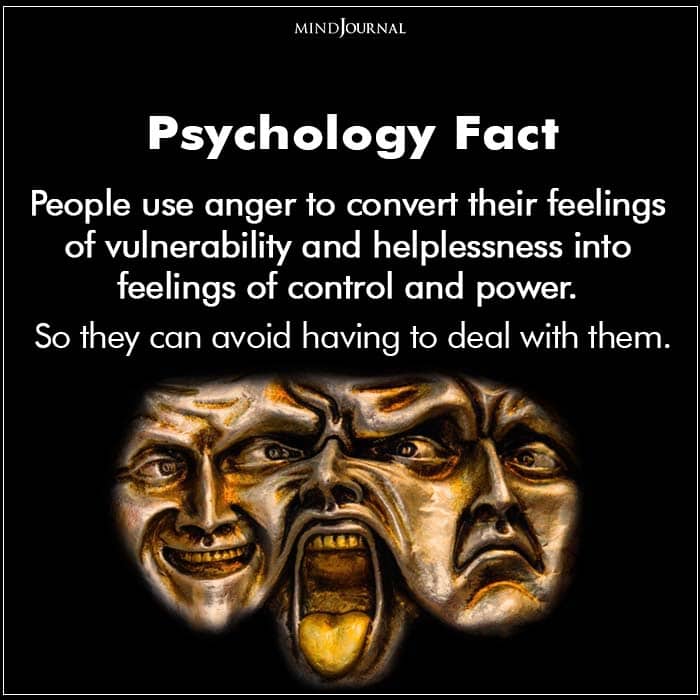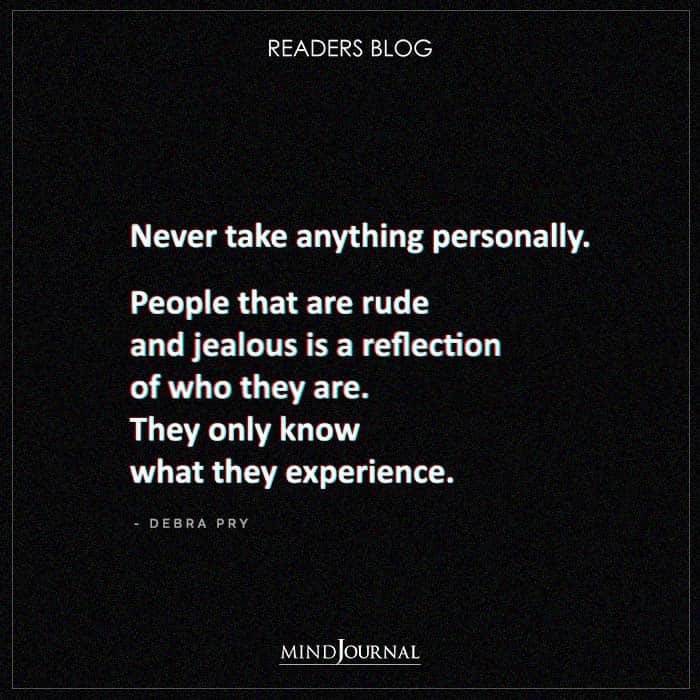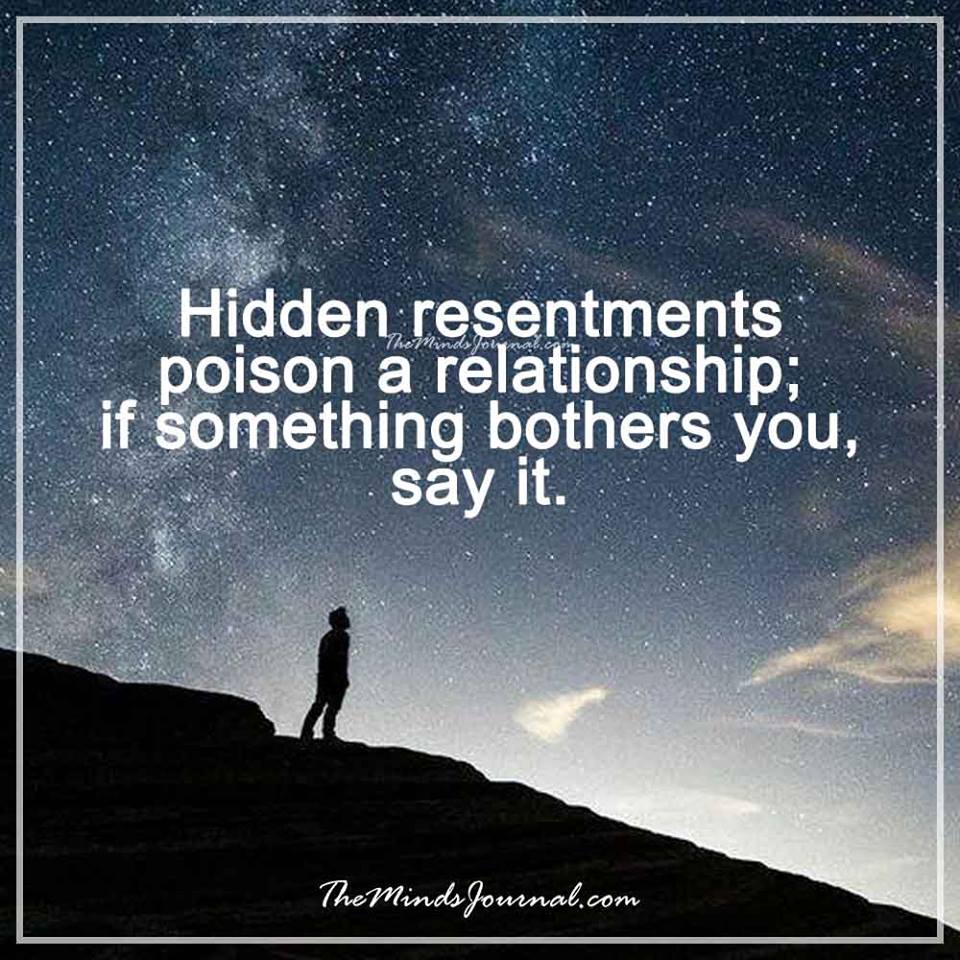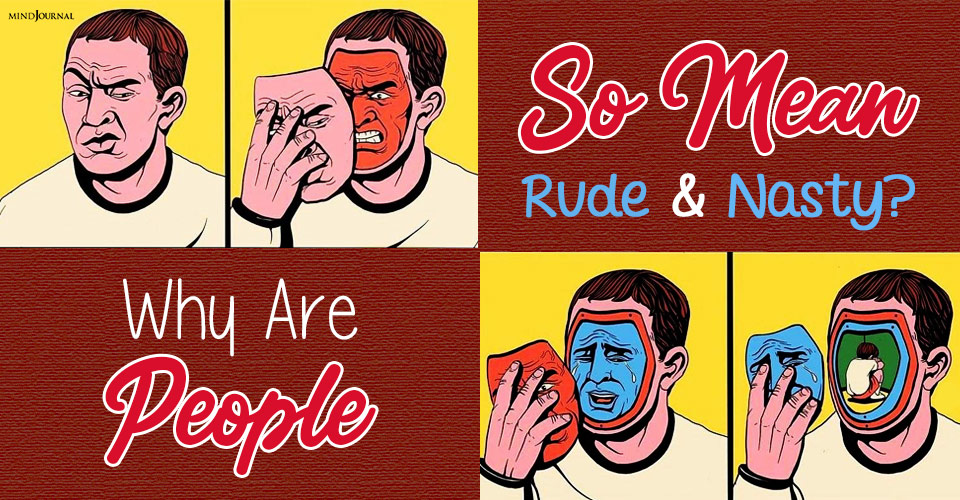You will find mean people in all phases of your life. It’s hard to know what’s going on in their mind when someone is being hateful. But what is the reason for this mean behavior? Are they deliberately trying to hurt others or is their behavior just a way to protect themselves from people hurting them? Why people are mean and rude to others?
Throughout our lives, we all come in contact with at least one person who we consider nasty, unkind, or mean. Like me, you might have been teased, gossiped about, shouted at, defamed, backed into a corner, intimidated, and unjustly punished – and your reaction might be “WHY?”
Why are people so mean with you and venomous towards each other? Why do some people seem to actually enjoy bitchiness and venomous behavior?
If you’re like most people your immediate answer might be something along the lines of, “ … because they’re bad people,” “ … because they’re psychopaths/sociopaths/narcissists,” “… because they’re evil,” “… because some people are just like that!”
While these answers are normal and widespread, they are nevertheless two-dimensional and narrow in outlook. If you’re tired of feeling enraged by other people and want to rediscover a sense of self-sovereignty, keep reading.
Important Note:
This article is written for understanding those in your life who, as far as you’re aware, are generally psychologically sound (but exhibiting unkind behavior).
Please do not seek advice or guidance from this article if you have come across an individual in your life who has been diagnosed with or shows clear signs of pathological mental illness (e.g., narcissism, sociopathy, psychopathy).
If you have been physically, emotionally, mentally, or sexually abused by any individual (or group) in your life, please seek professional help from a psychotherapist or abuse counselor immediately.
Related: Your Toxic Habit Based On Your Zodiac Sign
Why Anger Is Addictive
You’re in a conversation with someone, you say something apparently offensive, and the other person gets angry at you. They stand up menacingly and say, “You know, I’ve learned a thing or two about you. You’re a real piece of work and you don’t give a DAMN about anyone but yourself. It’s no wonder that you don’t have many friends.” Then, they leave abruptly.
What would your reaction be? You might jump up in rage and start challenging the person’s unfair assessment of you, hitting back with your own most vicious attacks. Or you might sit down, stunned, wondering what you said wrong as sadness and resentment slowly builds up within you.
“How could they treat me so badly?” you might wonder, “What the hell did I do?” Then you might boil with hatred for the rest of the day, demonizing the person in your mind in the meantime. These two reactions are fairly common among us in society and I have personally reacted in both ways on a number of different occasions in the past.
The result of getting consumed in another person’s toxic words and behaviors is devastating to our well-being … but you know what? It feels kind of good to be righteously indignant. It feels kind of nice to be intoxicated with anger.
Related: 13 Signs Of A Toxic Parent
When we feel unjustly wronged, we are immediately rewarded with the self-righteous feeling of being “victims” and not only that – we also feel a sense of immediate self-superiority.

How often in the past have you raged against a “terrible person” with the underlying assumption that “you are the superior person”? Probably a lot. But don’t worry; this is normal. We all do this.
The truth is that anger is like a drug because not only does it give us a false sense of being “better,” “nicer,” “more correct” and “justified” in our righteous indignation, but it also keeps up the illusion of separation between us and the world (or in other words, it solidifies our egos). This can be one of the greatest hindrances of looking behind the veil of mean behavior: our refusal to let go of our anger.
Once we’re ready to release our anger and once we’re willing to let go of the benefits it brings us, we can then learn to truly understand “why are people so mean and rude?” In other words, we can find more peace, spiritual healing, and inner freedom.
What’s Hidden Behind The Veil Of Mean Behavior?
In the process of demonizing mean and cruel people, we dehumanize them. Of course, it can be argued that there truly are “psychopaths” and “narcissists” out there who feel no empathy or remorse, but these types of people (who constitute a very low percentage of the population) are not who we’re referring to here.
I believe it’s reasonable to say that most of the unkind people we come across in life aren’t sociopaths or psychopaths, but are in fact normal, deeply wounded people. We don’t take time to understand them because we are greatly repelled by their behavior (and because let’s face it, we’re deeply wounded as well).
We spout excuses like, “So what? Everyone suffers but that’s no excuse for their behavior,” but this is only another way of perpetuating our self-righteous indignation and therefore continuing our own suffering. However, there’s something empowering and refreshing in not getting eaten up by bitterness, hatred, and anger any longer.

There’s something rejuvenating and liberating about taking your happiness into your own hands and understanding that:
All unkind, cruel, and vicious behavior has its root in pain. If you want to look behind the veil of mean people and bad behavior you have to understand a person’s pain. You have to be willing to be curious, you have to be willing to be open-minded, you have to be willing to be empathetic – even a tiny bit (as painful and annoying as that is).
Understanding another person’s pain involves disintegrating the boundaries between “you” and “other.” It might involve reflecting on what you know of that person’s past. It might involve asking your friends or colleagues why a person is behaving the way they are, or it might involve guesswork.

No matter what approach you decide to take, you’ll always discover something surprising: their behavior comes as a result of misdirected pain.
Whether that pain is:
- family stress,
- work pressures,
- a break up or divorce,
- a tragedy,
- triggered inner child,
- something more vague like depression,
- fear of failure,
- fear of abandonment,
- low self-esteem,
- anxiety
- or even a spiritual cause such as the dark night of the soul or soul loss,
… when a person doesn’t know how to deal with their pain they will misdirect it towards others. And that equals pain, multiplied.
But you can break this cycle of pain and you can stop it from impacting your thoughts, your feelings, and life. Learning how to emotionally understand a person is the best way to do that.
How To Liberate Yourself From Anger, Hatred, Bitterness, And Resentment Toward Another
It’s annoying and triggering to realize that our hatred, anger, and bitterness toward another person is:
1. Eating away at our sanity
2. Starving us of well-being
3. Causing anxiety and/or depression
4. Making us feel alone in the world
5. Reinforcing victim mentality
6. Alienating us from joy
7. Disempowering us

Let me be clear:
I’m not advocating becoming a doormat, letting others overstep your boundaries, becoming a bleeding heart, or staying in a toxic relationship.
I’m advocating freedom from hatred.
I’m calling those who are sick and tired of feeling browbeaten by others to reclaim a sense of empowerment through love and compassion.
No, you don’t need to excuse their behavior.
No, you don’t need to enable their behavior.
And you certainly don’t need to bend over backward for these people.
I know this is not easy. It’s a lifelong process.
But if you’d like to experience more inner freedom again, here are some paths:
1. Do some cleansing breathwork
Release your inner rage and disgust through the power of your breath. There are many different techniques described in a step-by-step way in our breathwork article.
Related: 11 Daily Zen Habits That Can Alter Your Life
2. Purge your inner feelings through intense exercise
Go out in nature. Get some vitamin D. Walk or run it all out. Dynamic meditation is also another good option for releasing pent-up emotions.
3. Explore how to let go
Related: The Reason Why You Can’t Let Go, Based On Your Zodiac Sign
There are many practices out there – over 40 of them are listed in this letting go guide. Next time a person treats you badly, stop. Let yourself feel your emotions of anger and resentment, but also let them pass. Ask yourself, “What type of pain is this person feeling that is causing them to act out in this way?” Then, allow yourself to expand as you open yourself to empathy and forgiveness.
At the end of the day, the desire to be free of anger is not about them, but about YOU. How free do you want to feel in life? How much empowerment and happiness do you want to carry with you, no matter what?
Written By: Aletheia Luna Originally Appeared On: Loner Wolf Republished with permission












Leave a Reply